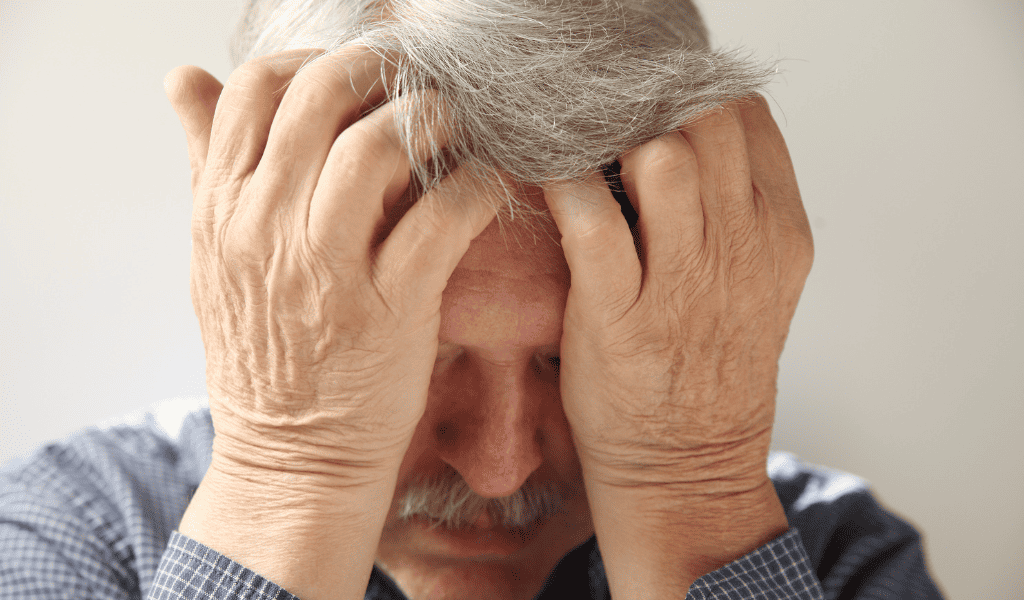
As we age, our bodies and minds go through many changes. While some of these changes are natural and expected, others can be signs of underlying health issues. One of the most common health issues that seniors face is anxiety and depression.
According to the National Institute of Mental Health, approximately 6.5 million adults over the age of 65 suffer from depression. However, this condition often goes undiagnosed and untreated in seniors, as it can be mistaken for other age-related issues.
In this article, we will explore the signs of anxiety and depression in seniors, the importance of addressing these conditions, the available treatment options, and the impact of independent living in Chattanooga, TN. By understanding the signs and seeking appropriate treatment, seniors can regain control of their mental well-being and thrive in their independent living communities in Chattanooga, TN.
The Importance of Addressing Anxiety & Depression in Seniors
Impact on Quality of Life
Anxiety and depression can significantly impact a senior’s quality of life. These conditions can lead to feelings of hopelessness, loss of interest in activities, and difficulty performing daily tasks. This can result in a decline in physical health, social isolation, and a decreased sense of purpose.
Increased Risk of Other Health Issues
Untreated anxiety and depression can also increase the risk of other health issues in seniors. These conditions have been linked to a higher risk of heart disease, stroke, and even dementia. They can also worsen existing health conditions, such as diabetes and arthritis.
Higher Mortality Rates
Studies have shown that seniors with untreated anxiety and depression have a higher mortality rate than those without these conditions. This is due to the impact these conditions can have on physical health, as well as the increased risk of suicide.
Signs of Anxiety & Depression in Seniors
Changes in Mood
One of the most common signs of anxiety and depression in seniors is a change in mood. This can include feelings of sadness, hopelessness, and irritability. Seniors may also experience frequent mood swings or a persistent feeling of emptiness.
Loss of Interest in Activities
Seniors with anxiety and depression may lose interest in activities they once enjoyed. This can include hobbies, social events, and even spending time with loved ones. They may also withdraw from social interactions and isolate themselves.
Changes in Appetite
Anxiety and depression can also affect a senior’s appetite. They may experience a decrease in appetite, leading to weight loss, or an increase in appetite, leading to weight gain. Changes in eating habits can also be a sign of other underlying health issues, so it is essential to address this symptom with a doctor.
Difficulty Sleeping
Seniors with anxiety and depression may have trouble falling asleep or staying asleep. They may also experience frequent nightmares or wake up feeling unrested. Changes in sleep patterns can also be a sign of other health issues, so it is important to discuss this symptom with a doctor.
Physical Symptoms
Anxiety and depression can also manifest in physical symptoms in seniors. These can include headaches, body aches, and digestive issues. Seniors may also experience fatigue, which can make it difficult to perform daily tasks.
Treatment Options for Seniors with Anxiety & Depression
Therapy
Therapy, also known as talk therapy, can be an effective treatment option for seniors with anxiety and depression. This involves meeting with a mental health professional to discuss thoughts, feelings, and behaviors. Therapy can help seniors identify and address underlying issues that may be contributing to their anxiety and depression.
Medication
In some cases, medication may be prescribed to help manage symptoms of anxiety and depression in seniors. These medications can help regulate mood and improve overall well-being. It is essential to work closely with a doctor to find the right medication and dosage for each individual.
Lifestyle Changes
Making lifestyle changes can also help seniors manage anxiety and depression. Regular exercise, a healthy diet, and getting enough sleep can all contribute to improved mental health. Seniors may also benefit from participating in social activities and hobbies they enjoy.
Support Groups
Joining a support group can provide seniors with a sense of community and understanding. These groups allow individuals to share their experiences and learn from others who are going through similar struggles. Support groups can also provide valuable resources and coping strategies for managing anxiety and depression.
Overcoming the Stigma of Mental Health in Seniors
Unfortunately, there is still a stigma surrounding mental health, particularly in seniors. Many seniors may feel ashamed or embarrassed to seek help for anxiety and depression, as they may see it as a sign of weakness or a personal failing.
It is essential to educate seniors and their loved ones about the prevalence of mental health issues in seniors and the importance of seeking treatment. By normalizing mental health and encouraging open communication, we can help seniors overcome the stigma and get the help they need.
Conclusion
Anxiety and depression are common conditions that can significantly impact the lives of seniors. It is essential to recognize the signs of these conditions and seek treatment to improve overall well-being and quality of life. With the right support and resources, seniors can overcome anxiety and depression and continue to live fulfilling lives.



